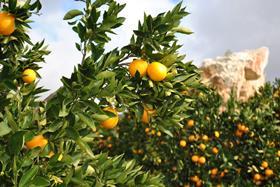
South Africa’s citrus industry says the UK Brexit vote could see a 'normalisation' of citrus trade between Southern Africa and the UK, unencumbered by protectionism, tariffs and technical barriers to trade.
In its first formal reaction to the decision by Britain to leave the European Union, the South African Citrus Growers Association (CGA) says Brexit has shaken many out of their comfort zones and has got people questioning the world as we know it.
“Political analysts predict a shake-up throughout the EU,” says Justin Chadwick of the CGA. “The impact of the decision by the UK to exit the European Union is still to be completely played out and consequences (good and bad) will surface for many years, making it a very complex situation.”
In highlighting the longer term impact, the CGA points out that for more than the past 100 years the UK has been the biggest importer of Southern African citrus, taking about 10 per cent of total citrus exports from the region.
“Brexit should see a normalisation of citrus trade between Southern Africa and the UK, unencumbered by protectionism, tariffs and technical barriers to trade,' h adds.
The CGA says at present UK plant health regulations are the same as those of the EU, as these were harmonised in 1992. Entry requirements for citrus shipped from Southern Africa to UK are the same as entry requirements for citrus shipped to the mainland European member states of the European Union.
“An independent UK will in all likelihood introduce its own plant health regulations, or at least remove or rescind those regulations that have no impact on the UK. Since the UK does not have any citrus (produce any citrus), plant health regulations on citrus imports should be easier to comply with than present EU regulations.”
“This alone,” says the CGA, “would be a significant boost for the Southern African citrus industry. We would hope that these changes would happen sooner rather than later.”
According to the CGA the UK will also need to enter into new trade negotiations with Southern African countries with regards to trade preferences and duties. “Present trade between the EU and South Africa is governed by the Trade and Development Cooperation Agreement (TDCA) and the recently concluded Economic Partnership Agreement (EPA). Since citrus would not be a sensitive product with regard to protecting domestic producers it could be anticipated that the UK would have reduced duty levels for Southern African citrus.”
The CGA says this would mean that UK citizens could potentially enjoy excellent quality Southern African citrus at even lower prices.
In what is clearly aimed at the way the EU and its institutions have been handling the citrus black spot (CBS) issues, the CGA says the UK would no longer have to rely on EU advisory bodies and scientific institutions in making decisions on plant health and food safety regulations. The UK would depend on their own scientists to assess risk and give advice on regulations.
Observers say this would mean that South African fruit exported to the EU would no longer be subject to CBS scrutiny, which would make life much easier for the South Africans who export their citrus to the UK. It could also open the door for the country’s organic lemon growers to re-enter the UK market after they accepted a voluntary ban this year.
The CGA does not address the free flow of fruit onto the continent once it had been cleared under the present EU entry rules in the UK. During the past 40 years the free flow of produce has allowed exporters and importers to move fruit across the Channel in times of over-supply or market pressure.
On the downside, the CGA does point out that the devaluation of the British Pound against the US Dollar following the Brexit decision will mean that imported products are more expensive in the UK. “This could reduce demand for these products. Interestingly the rand/UK pound exchange rate has not changed significantly. It will be interesting to see if the currency recovers.”



